Serious Problem or Temporary Inconvenience? Why Does the Pressure in the Heating System Drop, Is It Dangerous?
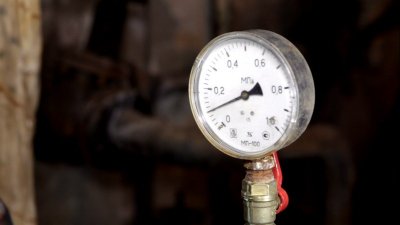
No heating system in a house or apartment can function without sufficient pressure.
Its sharp changes negatively affect the condition of the entire system and heating equipment, leading to breakdowns and creating emergency situations.
It is for these reasons that it is necessary to identify and eliminate the causes of low blood pressure.
Why does the pressure in the heating system drop, how to increase it
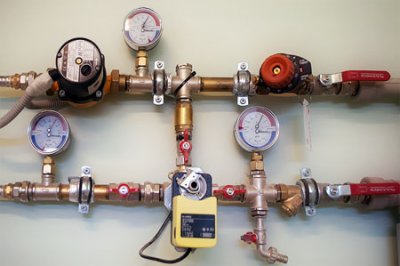
The most common and banal reason for pressure drop is power outage.
In case of frequent shutdowns, it is solved by additional installation alternative source of electricity.
If the power goes out rarely and only in emergency situations, then the problem will resolve itself after the power is turned on.
In case of power outage, it is recommended to check the pressure that the sensor shows. Its normal value is considered to be 2 atm., at a higher value there is a risk of depressurization of the heating structure. When water is supplied and the power is turned on, this value should be 1.5 atm.
Attention! Long power outage may cause the radiators to freezeThis situation is dangerous due to the costly repairs and replacement of a large amount of equipment.
Leak in the heating system
An equally common problem is the appearance of a leak. It can manifest itself both in an open and in a hard-to-reach place. You can find it by its characteristic whistle, which is created by the outgoing air, as well as when smearing joints and other problem areas with a soap solution. The presence of microcracks will be indicated by the appearance of soapy air bubbles.
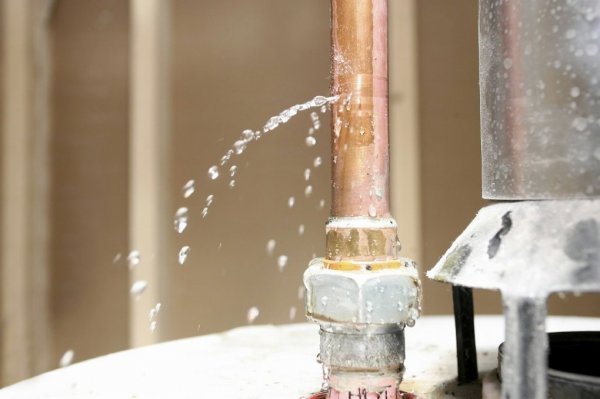
Photo 1. Leak in the heating system pipe. The formation of a leak can cause a drop in pressure.
A leak may occur inside the heated floor, when the integrity of one of the branches is accidentally damaged. This cause of pressure drop is easy to detect by the resulting wet spot on the floor covering or the appearance of a small fountain of water. To eliminate this problem it will be necessary to dismantle part of the floor And install a special coupling at the site of the breakageSuch repair work requires special skills and experience, which is why it is recommended that they be performed only by professionals.
Air leaking from expansion tank but no leaks
A few months later After starting the heating system, the pressure may begin to decrease and the reason for this is the release of air from the expansion tank. In the upper part of this structure there is a nipple through which the air is gradually released. Its complete release occurs only when the tank capacity is completely filled with coolant.
To normalize the indicators, measures are taken to reduce air ingress. To do this you will need:
- Competent creation of a heating scheme and commissioning the heating system according to it. The work must be performed by a professional, paying attention to all connections and elements of the heating structure. Mistakes made at this stage require large financial costs and time.
- Organizing testing of the system before its launch. To do this, pressure is applied using a compressor. 25% more than optimal. If it suddenly jumps within half an hour, this indicates a leak or a large amount of air has entered.
- Filling the system with coolant should occur slowly. and using cold water. Before this stage, the taps intended for draining water should be opened. If possible, the air from the radiators should also be released.
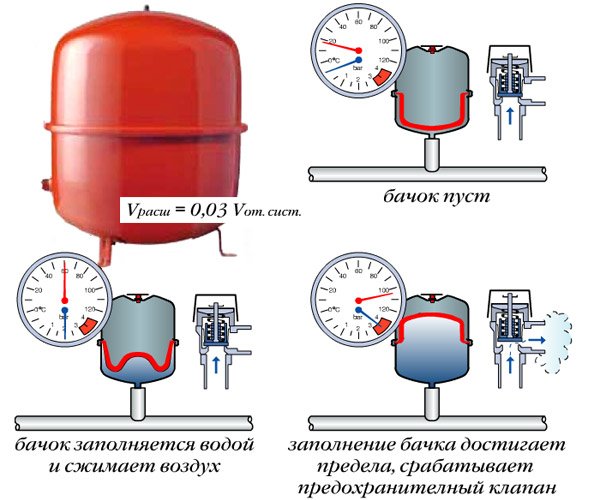
Photo 2. Pressure standards for different degrees of filling of the expansion tank in the heating system.
Common reasons
- Water leakage in places where pipelines intersect.
- Rust damage to pipes.
- Acceptable errors during installation and start-up heating system.
- Membrane deformation expansion tank.
- The appearance of microcracks on the heat exchanger.
- Malfunction of the automated boiler operation.
Pressure drop in a closed heating circuit: how to increase it
It is possible to organize a closed-type heating system by using a circulation pump. This design has the following advantages:

- Possibility of organizing a contour of any length.
- Using thinner pipes.
- Possibility of connecting batteries using a single-pipe scheme.
- Gentle use of the boiler.
It is possible to find the leak location by the brown stain on the floor covering, which appears after the coolant dries. The most effective way to find a leak is to treat the areas with a soap solution.
Important! The only reason why pressure drops in such a system is if its tightness is compromised.
To find the defect, it is recommended to pay attention to the following parts:
- Pipe connection points.
- Automatic air vents.
- Expansion tank.
- Shut-off valves.
- Safety valve.
To eliminate the leak, it is recommended to perform full or partial discharge of coolant. Once the repair work is completed, water is refilled into the system, the optimum pressure level is adjusted and monitored for several days.
Pressure loss during cooling. What to do if it is gone
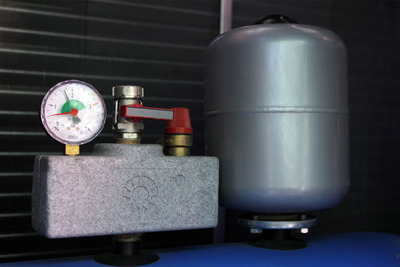
An equally common problem is pressure surges depending on the operation of the boiler. When it is turned off or switched to DHW mode, the indicators may decrease up to 1 or 0 atm.
In such cases, it is necessary to normalize it in the expansion tank, including the following stages:
- Shutting off the taps on the tank and then draining the coolant. After this stage, the pressure should drop completely.
- Open the drain nipple and measure the pressure in the tank using a pressure gauge.
- Use a pump to pump air into the tank, until water stops dripping from the nozzle.
- Release the previously pumped air.
- Npump the tank with air again until the pressure is equal 80% from the operating value.
- Close the nipple And power up the boiler.
Useful video
Watch a video that talks about the causes of low pressure in the heating system.
Conclusion
There are many reasons why the pressure in the heating system drops. To prevent this from leading to serious problems, when the pressure drops it is necessary to diagnose the cause in a timely manner And fix it yourself or with the help of a professional.





